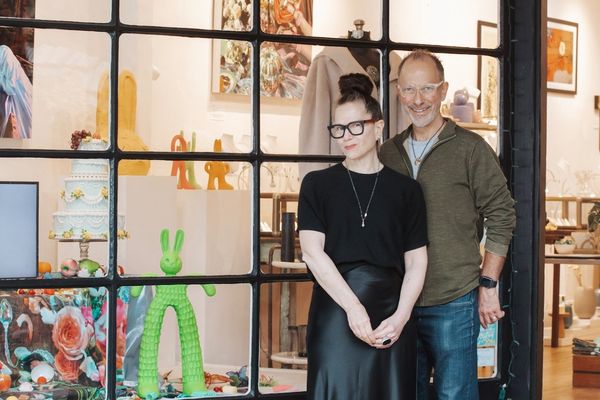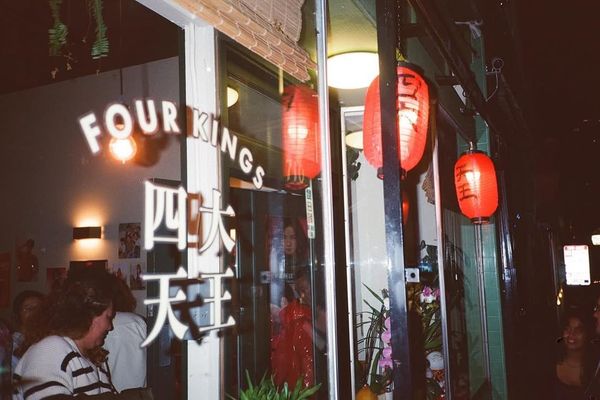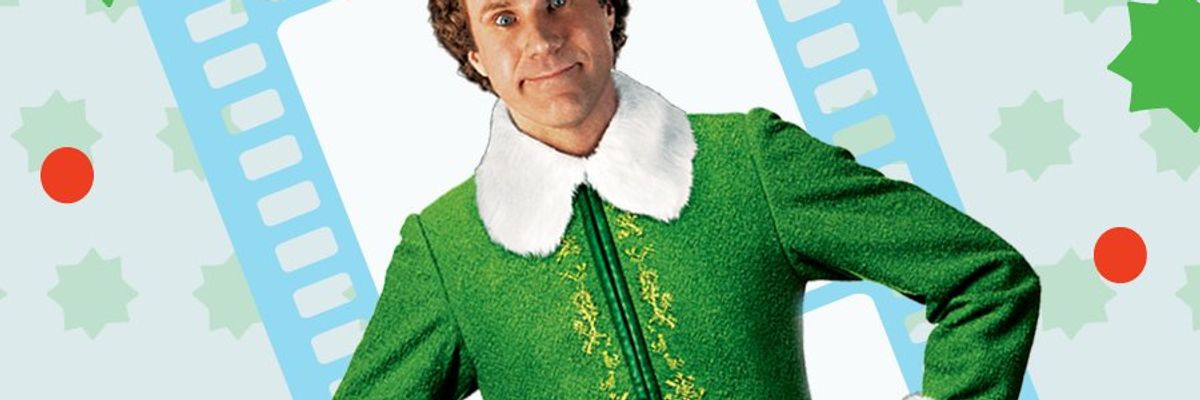Sometimes fantasy and flight are only ways to deal with a troublesome neighbor.
Beneath an overlay of soggy Styrofoam and general dilapidation, our Mission block had much to recommend it. Across the street, Garfield Park offered both balding soccer field and community pool, with honest-to-god giant Sequoias growing at its perimeter. On Saturdays, barbecue smells mingled in the air with the sounds of happy Mexican polkas. But directly next door to us was a house full of angry young men, and in the two years we were neighbors, our days went from tense to unbearable. Maybe a less moronic person would have responded differently. Me, I imagined becoming a superhero.
Me: Sorry to bother you, but it’s 2 in the morning, and your subwoofer is rattling our windows.
Neighbor: #@%& you.
Me: Uh-oh! Nobody ever taught you manners? Here, make yourself comfortable. I’ll give you an extensive tutorial ...
What happened next varied, depending on the fantasy. Sometimes I deflected my neighbor’s inevitable head-butt with a Batman-like karate chop. Other times I caught the oncoming bullet in my teeth, Superman-style. Following every real-life scene—garbage dumped in our yard, insults hurled at my wife—my make-believe self delivered a fearless, tedious lecture on whatever injustice had been perpetrated. I was a prim tyrant and a bore, but they couldn’t hurt me, and all my infantile daydreams played out gloriously.
In short, my neighbor frustrations led to the invention of a superhero not unlike your Spider-Man or Wonder Woman, except that I took aim at all the niggling insults that would be beneath a real superhero. And there were plenty. We were thoroughly friendly—even jokey and playful at first—but the guys just didn’t like us. Maybe we were interlopers on a block they’d dominated for years. Maybe our earnestness was annoying: our sputtering veggie oil car next to their monster V8s, our cheerful cat Biggie gazing innocently at their snarling dogs. Whatever it was, they unwelcomed us with glares and mutterings that only grew bolder over time. Sometimes we’d come home to a broken fence or a bottle smashed in our pathway, the stares from the stoop daring us to comment. Increasingly we didn’t. They had gangbanger friends, spoke intimately of violence. And, in my head, I turned muscle-bound and ridiculous, raining righteousness down upon every insult.
Me: Hey, guys. Heading over to the corner store.
Need anything? Some cupcakes?
Neighbor: Your mom.
Me: My mom? I believe you’re confused. You only say your mom if someone is rude or disrespectful to you.
Neighbor: [Getting up off stoop] Oh, you gonna give me a lecture?
Me: Why yes. Be friendly. Stop spitting at the feet of passersby. Help your girlfriend carry in the groceries once in a while. Also, that round thing is a garbage can. You can put your empty Cheetos bags in there instead of over our fence.
Neighbor: [Throwing a massive fist in my face] Yaaggghhhh!
Me: Uh-oh! Looks like you’re going to need a splint for that hand. Here, let’s go inside, and I’ll make you one.
Neighbor: [Holding his broken fist in stunned repentance] Wow, your face is like steel, and I just learned something important about neighborliness and anger management.
Me: Now how about those cupcakes?
Charming as it was, my nerdy fantasy world couldn’t last. It was a cold November evening when tensions between us escalated from unnerving to irreparable. I’d noticed a draft in the house—somehow the back door had been left open—and a strange noise coming in. At that moment I also realized Biggie was nowhere in sight. I ran outside with a flashlight, shining it deep in the rosemary and the bamboo. The noise was coming through the fence. I pointed my light through a hole the dogs had made in one of the slats. There was Biggie, lying lifeless.
Amy and I cried for weeks. The neighbors said nothing. It wasn’t their fault. I thought only: Let me travel back in time and fix that fucking fence. But there exist no such powers, only regrets and a steady Netflix stream to numb them.
It was during one movie-heavy evening, a month after Biggie’s death, that another startling sound made its way in, this time from the front of our house. It couldn’t be, I thought. I went to the window. It couldn’t be—but it was: Our neighbors were laughing and shouting up at us, “Meow! Meow! Meow!”
Winter in San Francisco is a gray slab of rain, a gloomy parade of tea mugs carried from gloomy kitchens. But in April the sun comes back. The barbecue smells and happy Mexican polkas return. For two years my stupid fantasies had gone unrealized—but it turned out one heroic possibility remained: We could fly away.
And so on a spring day, after a Captain America–like conquering of paperwork and boxes, we soared off forever, invisible capes fluttering out the back of our U-Haul. We moved far away, first to a small Oakland rental, then to Slovenia and finally back to San Francisco and a peaceful little home on an embarrassingly friendly Bernal Heights block. Our new neighbors are not fancy, but they’re neighborly, and we’ve become friends using purely mortal powers.
It’s been five years. I’ve fantasized occasionally about returning for a final, more realistic act of revenge—surely even Clark Kent could manage a simple stink bomb. But time stops for no one, super or otherwise. The other day I drove past the old house and was shocked to see a “For Sale” sign in front of our neighbors’ stoop. I shuddered at the possibility of the guys relocating and somehow ending up on our new block. But that’s the nice thing about superheroes. They’re always available for sequels.
Chris Colin, author of What Really Happened to the Class of ’93(Broadway), has also written for The New York Times, Mother Jones and McSweeney’s. He’s currently at work on a new book about the marketing of freedom.




















